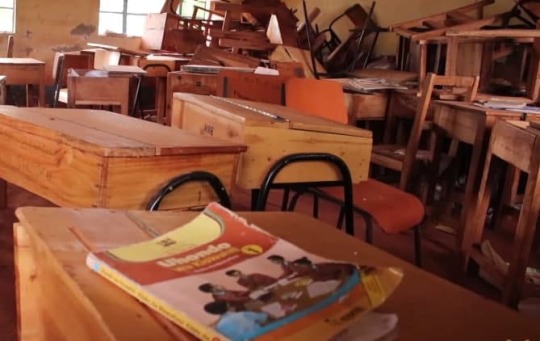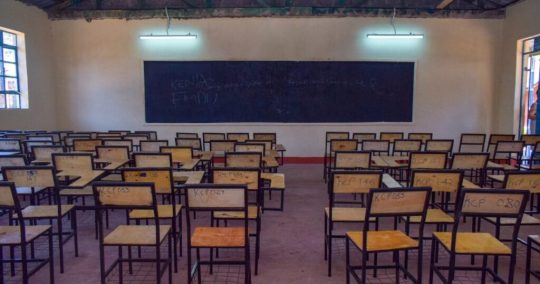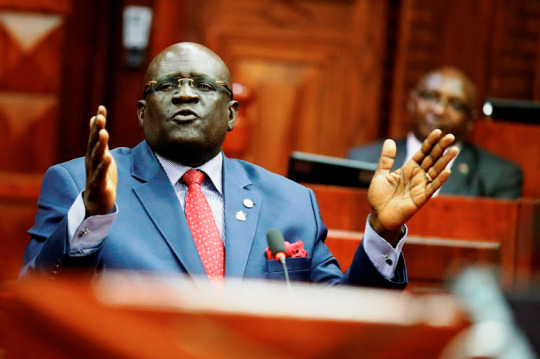
No Long-Term Infrastructure In Public Schools – Auditor general
According to a new report, public primary schools are dealing with dilapidated infrastructure and overcrowded facilities with no plans for expansion.
The Auditor General’s report has called the Ministry of Education to task for failing to have a long-term expansion plan for schools.
Most schools are underfunded, according to an audit covering the fiscal years 2015-2016 to 2019-2020.
“The lack of a long-term plan is occasioned by an inadequate needs assessment, inadequate budget, and lack of adequate guiding policy on infrastructure standards,” the report reads.
According to the report, this has resulted in overcrowding in the majority of the country’s schools.
The consequence of the lack of a long-term plan for expansion, improvement, and maintenance is an infrastructure deficit.
The Education Ministry has been allocated Sh4.2 billion for primary and secondary school infrastructure in 2021, among other things.
Previously, Sh5,000 was allocated to each student in the 2020-21 fiscal years to help develop schools.
The funds were distributed through the Maintenance and Improvement Fund as well as the Economic Stimulus Programme.
The funds are intended to cover the construction and repair of classrooms, labs, sanitation facilities, dormitories, and dining halls, in addition to chairs, lockers, and desks.
Gathungu stated in the report that the capitation released for each student at the time of the audit was insufficient to carry out impactful projects.
Furthermore, an examination of data obtained from the Education Ministry reveals that approximately 22,000 public primary schools were funded over a ten-year period (2010/2011 to 2019/2020).
“Interviews with school heads revealed that the amount received is not adequate to undertake maintenance projects that are impactful,” the report reads.
According to the results of the analysis, each school received Sh648,453 from the School Infrastructure Fund.
Further review of schools’ funding requests revealed that this amount may only be enough to complete one classroom.
The Auditor-General
She mentioned that the institutions are asked to provide ad hoc reports on their needs.
She went on to say that there is no evidence that the ministry uses the data for long-term planning.
“Individual schools send their infrastructure needs any time of the year depending on the urgency of their need and if requested to do so,” the report reads.
Still, Gathungu questioned why the Basic Education Act 2013 does not provide guidance on materials to be used and maintenance standards for facilities.
According to her, the regulation only specifies the class size in terms of students per class as well as the number of students who may use a restroom.
According to the Basic Act 2013, an application for the establishment of a basic education institution must include the proposed institution’s name, physical, postal, and electronic addresses.

Academic Gains In Private Schools Exaggerated – Report
The Act states that it should include the institution’s governance and management structures, membership in the proposed institution, academic qualifications, and experience of the promoters and managers.
According to Gathungu, a lack of proper guidance is likely to lead to the adoption of low-quality facilities.
This she says allows for any type of structure to be used as a classroom, restroom, or other facilities. Simultaneously, any type of material can be used for construction.
The report shows that the lack of a long-term plan has resulted in infrastructure deficits, which cause crowding and congestion.
As primary schools struggle with overcrowding, it is expected that the situation will worsen due to the expected double intake while accommodating junior secondary students.
Magoha has been travelling across the country to oversee the implementation of the presidential directive on the Sh8 billion CBC classrooms project in secondary schools.
He forewarned contractors about lateness and poor workmanship.
The CS stated that, with the exception of a few regions, most construction projects have begun across the country.
He directed national government officials in charge of project implementation to begin the process as soon as possible.
Magoha stated that his ministry, in collaboration with other agencies, is working tirelessly to ensure that the transition to junior secondary school goes off without a hitch.
Capitation funds awarded to public schools for infrastructure are distributed based on budgetary allocations in a fiscal year.
According to a report by the departmental committee on education and research, schools that apply for grants are subject to a quality assessment procedure by ministry officials.
Among other things, the Education Ministry received Sh4.2 billion for primary and secondary school infrastructure.
Also Read:
Previously, Sh5,000 was allocated to each student in the 2020-21 fiscal years to help develop schools.
This year, the government set aside Sh2,000 for each learner.
The funds are also intended to support parental initiatives such as the construction of dormitories and classrooms to complete stalled infrastructure projects.

Education Ministry Has Deficit of 55 Percent Of Quality Assurance Officers – Auditor’s Report.
No Long-Term Infrastructure In Public Schools – Auditor general

